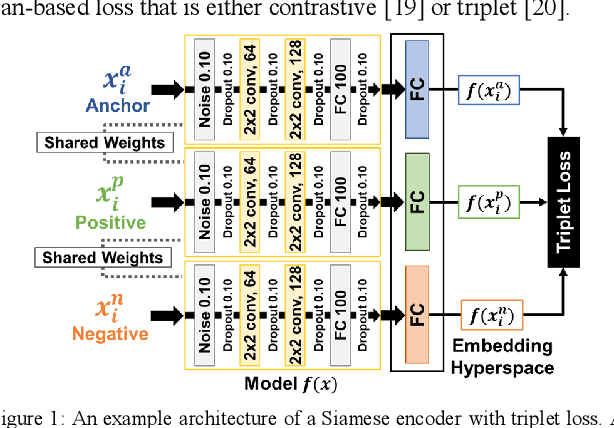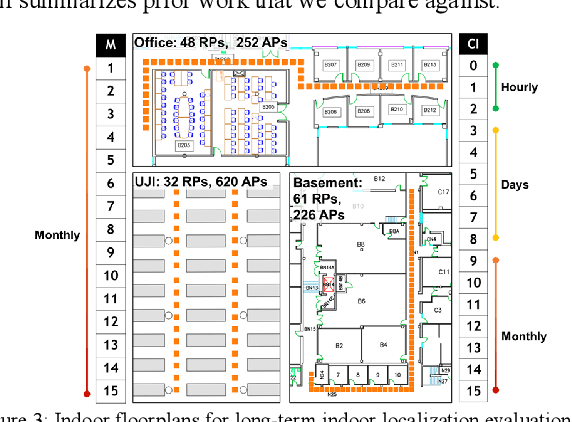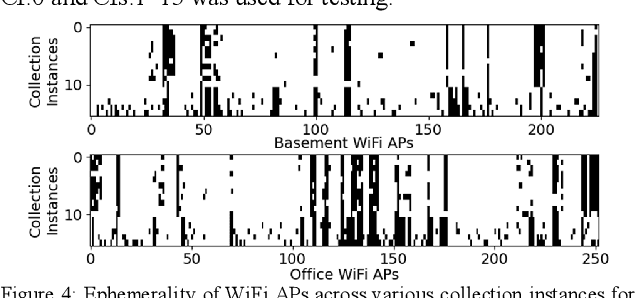Siamese Neural Encoders for Long-Term Indoor Localization with Mobile Devices
Paper and Code
Nov 28, 2021



Fingerprinting-based indoor localization is an emerging application domain for enhanced positioning and tracking of people and assets within indoor locales. The superior pairing of ubiquitously available WiFi signals with computationally capable smartphones is set to revolutionize the area of indoor localization. However, the observed signal characteristics from independently maintained WiFi access points vary greatly over time. Moreover, some of the WiFi access points visible at the initial deployment phase may be replaced or removed over time. These factors are often ignored in indoor localization frameworks and cause gradual and catastrophic degradation of localization accuracy post-deployment (over weeks and months). To overcome these challenges, we propose a Siamese neural encoder-based framework that offers up to 40% reduction in degradation of localization accuracy over time compared to the state-of-the-art in the area, without requiring any retraining.
 Add to Chrome
Add to Chrome Add to Firefox
Add to Firefox Add to Edge
Add to Edge